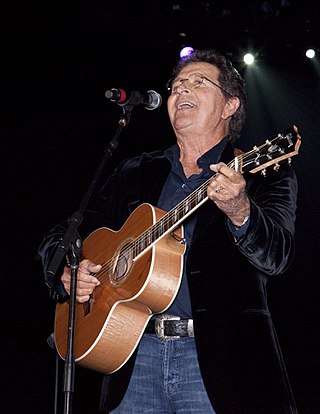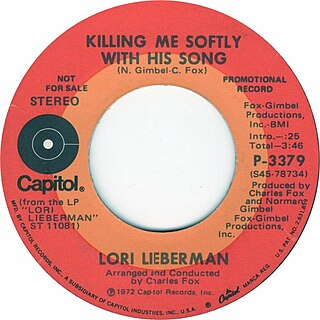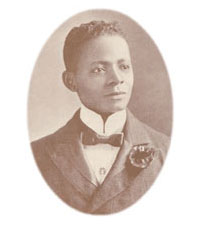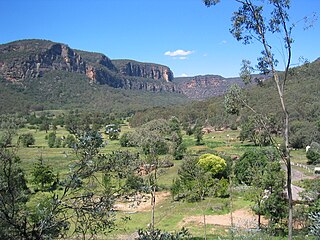Related Research Articles

Scott Joplin was an American composer and pianist. Dubbed the "King of Ragtime", he composed more than 40 ragtime pieces, one ragtime ballet, and two operas. One of his first and most popular pieces, the "Maple Leaf Rag", became the genre's first and most influential hit, later being recognized as the quintessential rag. Joplin considered ragtime to be a form of classical music meant to be played in concert halls and largely disdained the performance of ragtime as honky tonk music most common in saloons.

Angela Yvonne Davis is an American Marxist and feminist political activist, philosopher, academic, and author. She is Distinguished Professor Emerita of Feminist Studies and History of Consciousness at the University of California, Santa Cruz. Davis was a longtime member of the Communist Party USA (CPUSA) and a founding member of the Committees of Correspondence for Democracy and Socialism (CCDS). She was active in movements such as the Occupy movement and the Boycott, Divestment and Sanctions campaign.

"Heartbreak Hotel" is a song recorded by American singer Elvis Presley. It was released as a single on January 27, 1956, Presley's first on his new record label RCA Victor. It was written by Mae Boren Axton and Tommy Durden, with credit being given also to Presley. A newspaper article about the suicide of a lonely man who jumped from a hotel window inspired the song. Axton presented the song to Presley in November 1955 at a country music convention in Nashville. Presley recorded it on January 10, 1956, in a session with his band, the Blue Moon Boys, the guitarist Chet Atkins and the pianist Floyd Cramer. "Heartbreak Hotel" comprises an eight-bar blues progression, with heavy reverberation throughout the track, to imitate the character of Presley's Sun recordings.

Andrew James Summers is an English guitarist best known as a member of the rock band the Police. He was inducted into the Rock and Roll Hall of Fame as a band member in 2003. Summers has recorded solo albums, collaborated with other musicians, composed film scores, written fiction, and exhibited his photography in galleries.

Samuel Timothy McGraw is an American country singer, songwriter, record producer, and actor. He has released 16 studio albums. 10 of those albums have reached number one on the Top Country Albums charts, with his 1994 breakthrough album Not a Moment Too Soon being the top country album of 1994. In total, McGraw's albums have produced 65 singles, 25 of which have reached number one on the Hot Country Songs or Country Airplay charts. Three of these singles – "It's Your Love", "Just to See You Smile", and "Live Like You Were Dying" – were respectively the top country songs of 1997, 1998, and 2004 according to Billboard Year-End. He has also won three Grammy Awards, 14 Academy of Country Music awards, 11 Country Music Association (CMA) awards, 10 American Music Awards, and three People's Choice Awards. His Soul2Soul II Tour, which was done in partnership with his wife, Faith Hill, is one of the highest-grossing tours in country music history, and one of the top five among all genres of music. He has sold more than 80 million records worldwide, making him one of the best-selling music artists of all time.
Daniel Grafton Hill IV is a Canadian pop singer and songwriter. He had two major international hits with his songs "Sometimes When We Touch" and "Can't We Try", a duet with Vonda Shepard, as well as a number of other charting singles in Canada and the United States. He also established himself as a songwriter who produced hit songs for artists such as George Benson and Celine Dion.
"Goodnight, Irene" or "Irene, Goodnight," is a 20th-century American folk standard, written in 3
4 time, first recorded by American blues musician Huddie 'Lead Belly' Ledbetter in 1933. A version recorded by the Weavers was a #1 hit in 1950.

David Kenneth Ritz Van Ronk was an American folk singer. An important figure in the American folk music revival and New York City's Greenwich Village scene in the 1960s, he was nicknamed the "Mayor of MacDougal Street".

"Gimme Some Lovin'" is a song first recorded by the Spencer Davis Group. Released as a single in 1966, it reached the Top 10 of the record charts in several countries. Later, Rolling Stone included the song on its list of the 500 Greatest Songs.

Morris Mac Davis was an American songwriter, singer, performer, and actor. A native of Lubbock, Texas, he enjoyed success as a crossover artist, and during his early career he wrote for Elvis Presley, providing him with the hits "Memories", "In the Ghetto", "Don't Cry Daddy", and "A Little Less Conversation". A subsequent solo career in the 1970s produced hits such as "Baby Don't Get Hooked on Me". Davis also starred in his own variety show, a Broadway musical, and various films and TV shows.
"You Are My Sunshine" is an American standard of old-time and country music and one of the official state songs of Louisiana. Its original writer is disputed. According to the performance rights organization BMI, by the year 2000 the song had been recorded by over 350 artists and translated into 30 languages.

"Killing Me Softly with His Song" is a song composed by Charles Fox with lyrics by Norman Gimbel. The lyrics were written in collaboration with Lori Lieberman after she was inspired by a Don McLean performance in late 1971. Denied writing credit by Fox and Gimbel, Lieberman released her version of the song in 1972, but it did not chart. The song has been covered by many other artists.

Gussie Lord Davis was an American songwriter born in Dayton, Ohio. Davis was one of America's earliest successful African-American music artists, the first black songwriter to become famous on Tin Pan Alley as a composer of popular music.
"Wind Beneath My Wings" is a song written in 1982 by Jeff Silbar and Larry Henley.

Alan Christie Wilson, nicknamed "Blind Owl", was an American musician, best known as the co-founder, leader, co-lead singer, and primary composer of the blues band Canned Heat. He sang and played harmonica and guitar with the group, live and on recordings. Wilson was the lead singer for the group's two biggest U.S. hit singles: "On the Road Again" and "Going Up the Country".

Psalm 137 is the 137th psalm of the Book of Psalms, beginning in English in the King James Version: "By the rivers of Babylon, there we sat down". The Book of Psalms is part of the third section of the Hebrew Bible, and a book of the Christian Old Testament. In the slightly different numbering system used in the Greek Septuagint and Latin Vulgate translations of the Bible, this psalm is Psalm 136. In Latin, it is known by the incipit, "Super flumina Babylonis". The psalm is a communal lament about remembering Zion, and yearning for Jerusalem while dwelling in exile during the Babylonian captivity.

Melancthon Woolsey Stryker, an American clergyman, was pastor of the Fourth Presbyterian Church in Chicago and president of Hamilton College in upstate New York from 1892 to 1917. He distanced Hamilton from the Presbyterian Church, moving it towards becoming a more secular institution.

Edward John Renehan Jr. is an American writer, consultant, publisher, and Grammy Award-winning musician.

The Capertee Valley is a large canyon in New South Wales, Australia, 135 km (84 mi) north-west of Sydney that is noted to be the second widest of any canyon in the world, exceeding the Grand Canyon. It is located 135 km (84 mi) kilometres north-west of Sydney, between Lithgow and Mudgee, in the Central Tablelands, just above the Blue Mountains.
The Tumbleweeds, sometimes billed as Cole Wilson And His Tumbleweeds, were a New Zealand country and western group founded in Dunedin in 1949. The band are considered among the major pioneers of New Zealand country music. They were amongst the first to perform and record country music in New Zealand with their cover of Gussie Davis's standard "Maple on the Hill" reportedly selling over 80,000 copies, making it one of New Zealand's most sold singles of all time and equivalent to a double-platinum disc.
References
- ↑ Rosenberg, Neil V.; Wolfe, Charles K. (22 April 2024). The Music of Bill Monroe. University of Illinois Press. ISBN 978-0-252-05623-9.
- ↑ Jasen, David A.; Jones, Gene (2013). Spreadin' Rhythm Around: Black Popular Songwriters, 1880–1930. Routledge. pp. 17–21. ISBN 978-1-135-50972-9.
- 1 2 Waltz, R. B., and Engle, D. G., "Maple on the Hill," fresnostate.edu Retrieved 13 July 2022.
- ↑ "We Sat Beneath the Maple on the Hill," secondhandsong.com. Retrieved 13 July 2022.
- ↑ e.g., "Maple on the Hill," classic-country-song-lyrics.com Retrieved 13 July 2022.